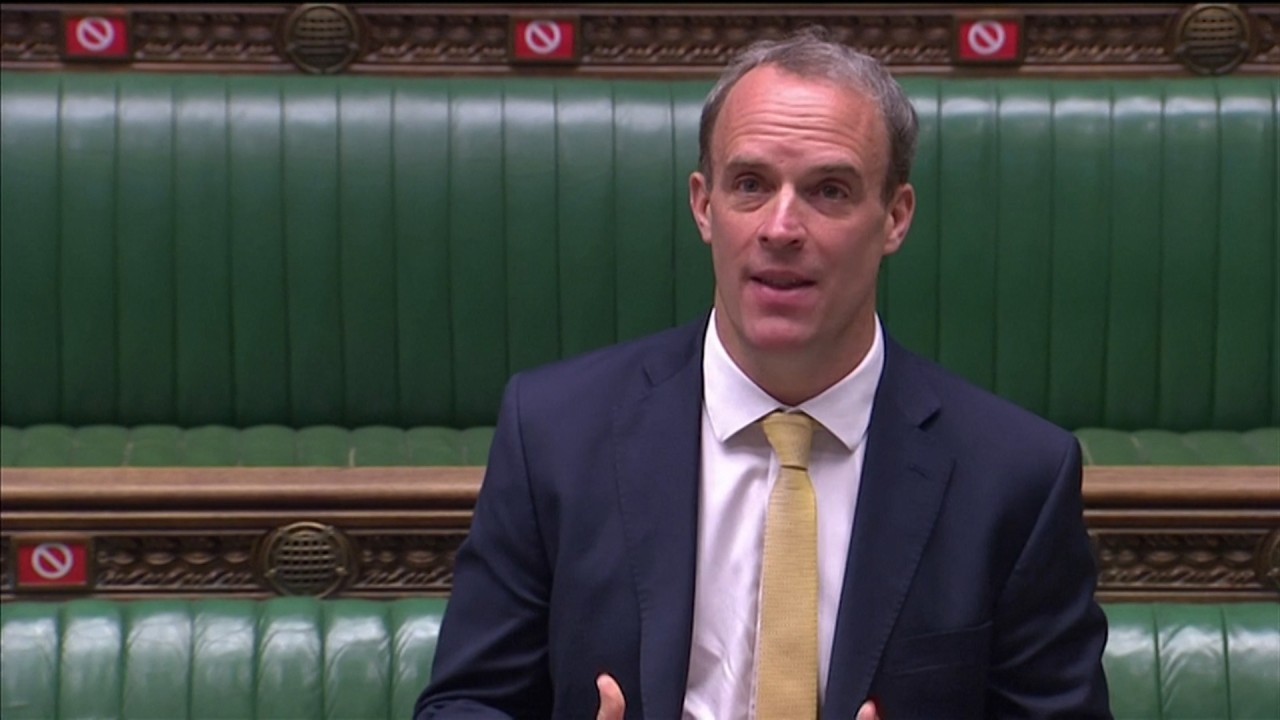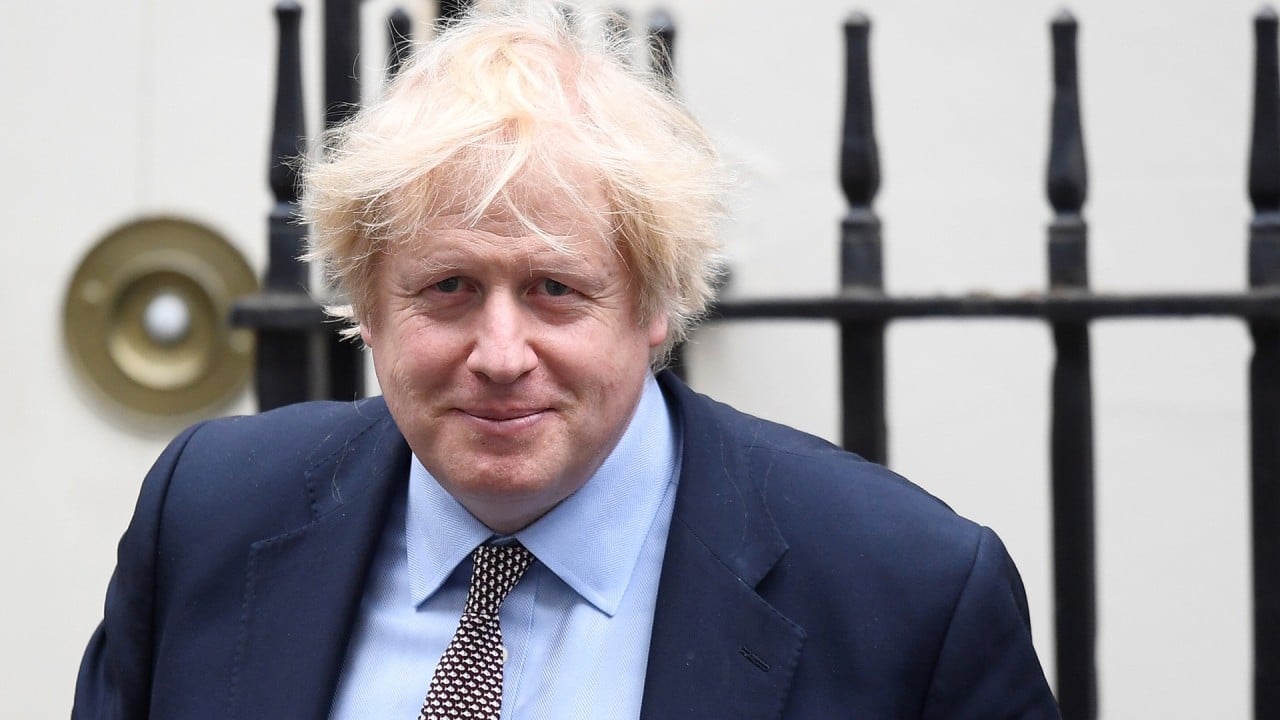
National security law: Britain set to confirm BN(O) passport offer to 3 million Hongkongers
- British Foreign Secretary Dominic Raab to make statement about Hong Kong’s new national security law, as EU and G7 also consider action
- Raab could specify extended rights for people eligible for BN(O) passports, offered to Hong Kong citizens born before 1997
Update: Britain confirms it will give 3 million Hongkongers path to citizenship
Foreign Secretary Dominic Raab is set to make an appearance at the House of Commons at 12.30pm British time (7.30pm Hong Kong time) “with an update on the Hong Kong national security legislation, and the UK’s response”, according to the parliamentary schedule.
Raab has also been urged by some members of parliament to impose sanctions on Chinese and Hong Kong officials involved in what they call infringement of human rights in the former British colony.

01:14
UK to raise concerns about Hong Kong national security law before UN Human Rights Council
Calls for action were also on the rise in Brussels and at the United Nations. Reinhard Buetikofer, chair of the China delegation in the European Parliament, said that “the Hong Kong we knew is dead now”.
“The European Union and its member states in particular must pick up the proposals made by the European Parliament in dealing with Beijing’s transgressions,” Buetikofer said. “Beijing should be taken to the International Court of Justice.”

03:08
Boris Johnson vows to change visa system for Hongkongers under national security law
Before Raab’s parliamentary appearance, Foreign Office lawyers and translators were said to have been asked to stay up overnight to pore over the legislation and assess whether it contravened the 1984 Sino-British Joint Declaration setting out the terms of Hong Kong’s handover, the i newspaper reported.
“We urgently need to see the full legislation, and will use that to determine whether there has been a breach of the Joint Declaration and what further action the UK will take,” he said in a statement.

03:08
Hongkongers fearing national security law see BN(O) passports as sign of hope
Lisa Nandy, the foreign policy spokeswoman of the opposition Labour Party, said Raab “must come to Parliament [on Wednesday] and make good on the commitment we have to Hong Kong and its people”.
In a statement, the Inter-Parliamentary Alliance on China, co-chaired by former Conservative Party leader Iain Duncan Smith and comprising lawmakers from 16 parliaments, called Beijing’s new law “a comprehensive assault on the liberties of the people of Hong Kong”.
Hong Kong national security law full text:
Also on Tuesday, Britain’s ambassador to the United Nations in Geneva, Julian Braithwaite, told a meeting of the UN Human Rights Council: “We urge the Chinese and Hong Kong governments to reconsider the imposition of this legislation and to engage Hong Kong’s people, institutions and judiciary to prevent further erosion of long-standing rights and freedoms.”
Braithwaite was making a joint statement on behalf of 27 countries, including EU members, Australia, Canada, Japan, New Zealand and Switzerland.
EU ‘deplores’ Beijing’s move to pass national security law for Hong Kong
Hong Kong’s leader Carrie Lam addressed the Geneva forum by video message and said that China’s national security legislation would fill a “gaping hole” and would not undermine Hong Kong’s autonomy.
Ursula von der Leyen, President of the European Commission, did not specify what the EU would do in response, but said on Tuesday that the commission – the EU’s executive arm – would work with the European Parliament and other international partners.
An EU source told the South China Morning Post that the bloc would also look at how the new law would affect the work of its diplomats, non-governmental organisations’ workers, academics and journalists in Hong Kong.
“The law is pretty wide, and we will need to consider all possibilities,” the source said.

